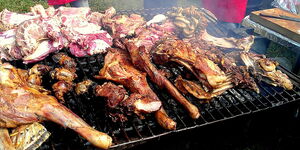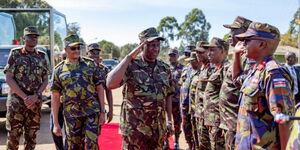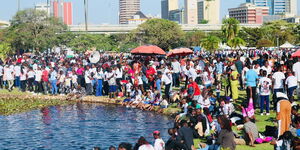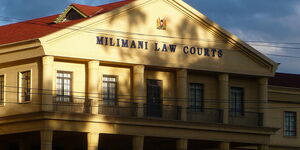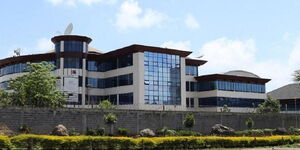Ruracio has been a solemn practice in Kikuyu traditional culture as it involves the negotiations and payment of the bride price before any marriage can be completed.
This is a delicate process that entails elaborate procedures set before the groom is allowed to marry the bride.
The Kikuyu community's traditions have provisions on how dowry payment ought to be conducted in order to validate the marriage as well as ensure the relationship's stability.
Kenyans.co.ke spoke to Wachira Kago, the chairman of the Kikuyu Council of elders to break down the customary laws set out for the dowry payment.
When a groom is interested and seeks to marry a girl, he sets out to visit her homestead. According to Kago, the groom can tag along with a friend. The main aim of the visit is to find out more information about the homestead including the woman's clan, community.
"This is important in order to identify the girl's mũhĩrĩga (clan) as customary laws don't allow intermarriages between certain clans," Kago stated.
The groom then informs his parents or guardians of his intentions to marry the girl and gives information about her clan and community.
The information is vital for the groom's father who conducts his own research. He then forms a committee of reputable elders (athuri) from where a spokesperson is chosen.
The spokesperson can make or break the ruracio process hence he must rise to the occasion and skillfully steer the negotiation process.
The girl will also approach her parents and notify them of her intentions to get married. The parents will also enquire about the groom's mũhĩrĩga (clan) and community. A word is sent out to the girl's homestead that visitors will be coming to visit on a certain date.
Like the groom's side, the girl's family also forms a committee to conduct the negotiations.
Kumenya Mucii ( Get to know the bride's home)
On the said date (kumenya mucii), the groom's clan comes with Njohi ya Njurio (beer for asking the girl's hand) for pleasantries and to appease the girl's homestead.
As per the customs, the guests are received and refreshments are provided. Once satisfied, the groom's spokesperson would declare the intention of the visit.
On normal occasions, the elders would converse and use the term 'sheep' or 'goat' in reference to the bride- noting that they intend to bring one of the 'sheep' to their homestead.
Kago noted that primarily, the negotiations are not done on the same day, the visit is mainly conducted to declare their intentions.
Once the girl's clan accepts, they set a date for the official betrothal as it is a confirmation of the impending union and beginning of Uthoni (relationship between the two sides).
Kuhanda Ithigi (groom officially books the bride)
Some communities conduct the kumenya mucii and kuhanda Ithigi on the same day however, for some, they are conducted on different dates.
At this ceremony, the groom's side brings a young virgin sheep and goat ('mwati na harika'). This symbolizes the imminent marriage between both parties.
Kuhanda Ithigi is the ceremony whereby the bride is officially off the market- the groom officially book her. In Kikuyu customs, the term means planting a branch of a tree where it officially symbolizes that the girl has been booked.
Kuracia - (actual dowry payment)
Kuracia or otherwise known as ruracio is the dowry negotiation and payment part of the traditional ceremony.
The ruracio goes according to the customs whereby a bride's dowry is particularly determined by the amount of dowry that her father paid for her mother.
The dowry price is valued in terms of livestock. The bride's clan details down the dowry and a final price is agreed upon ( kuunirwo miti).
In the olden days, the livestock would be delivered physically but in modern days where there is limited space for farming, most families convert the agreed goats or cows in cash.
Once agreed, it's the duty of the groom to pay the agreed amount. However, Kago noted that the groom can pay in installments. He added that clearing the debt upholds the family's reputation.
"Before they drink, partake of the gifts, the bride-to-be is called and asked if they can take or accept the gifts if she says yes, then they can proceed," Kago stated.
Itara- bride's family visits to the groom's homestead
This is a ceremony where the bride's parents visit the groom's house assurance that their daughter has found a home.
The bride is shown her wifely duties and how she will maintain her homestead. Itara means a storage section for abundant wood, food and water in the traditional kitchen.
The bride's mother hands her over to the mother-in-law who escorts her and gives her a tour of the home.
Ngurario- climax of the ceremony
This marks the climax of the traditional ceremony process. It signifies the completion of the dowry process.
When all dowry has been paid, the bride cannot return to her home. The ceremony mirrors the cake cutting done in modern weddings.

